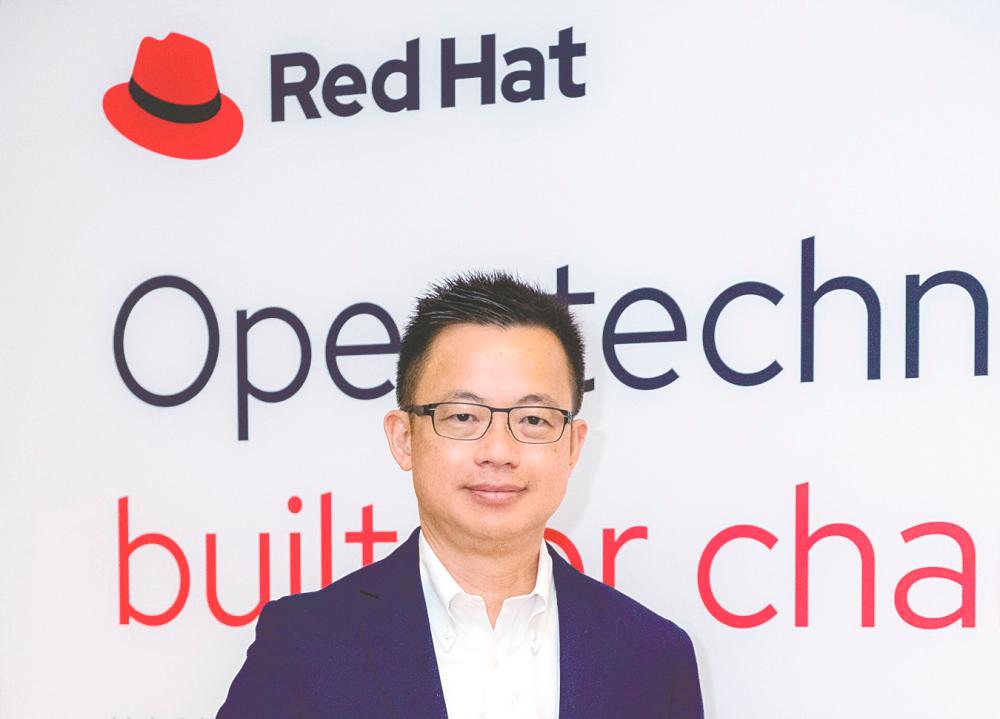KUALA LUMPUR: Red Hat is spearheading efforts to promote sustainable and effective use of artificial intelligence (AI) in Malaysia, addressing both environmental concerns and infrastructure challenges while fostering national collaboration.
Red Hat’s Rest of Southeast Asia general manager Albert Chai emphasised the importance of making AI “greener”.
“The processing power required for AI, particularly the graphic processing units, is massive. The energy consumed and the associated cooling requirements have significant implications for greenhouse gas emissions and global warming,” he stated.
Chai highlighted the open-source technology company’s commitment to improving AI sustainability by optimising hardware usage and exploring smaller, more efficient AI models. “By using platforms such as InstructLab, we can generate synthetic data, which allows us to train AI models with less actual data and thus reduce the overall power consumption.”
He said the company is also focusing on the broader scope of infrastructure and environmental impact.
“Data centres, especially those for AI, consume a tremendous amount of power and water. In Malaysia, the availability of cost-effective power and water, along with ample land, makes it an attractive location, but we need to manage this carefully to avoid worsening our greenhouse gas issues.”
Regarding Malaysia’s national AI roadmap, Chai underscored the importance of collaboration among industry, academia, and government.
“We are particularly passionate about enhancing cooperation in AI research and development and talent development. Our partnership with Asia Pacific University of Technology and Innovation and the expansion of Red Hat Academy are steps towards upskilling local talent,” he said.
Additionally, Chai said, Red Hat is contributing to building a robust AI ecosystem by working with infrastructure partners, AI application developers, and consulting firms. “AI is a team endeavour, and we are committed to strengthening this collaborative network.”
Chai advised businesses to prepare for the introduction of AI governance and ethical guidelines by implementing strong data governance practices. “Data classification and access policies are foundational elements of AI governance. Ensuring that these are in place helps manage the ethical use of AI.”
He also highlighted the need for robust operational policies and cybersecurity measures to address AI-specific threats.
In terms of Malaysia’s progress in AI adoption, Chai said the country is ranked 23rd in AI readiness according to Oxford Insights, which places it ahead of some Southeast Asian neighbours but behind others such as Singapore.
“We are keeping pace, but there’s no clear leader in the region yet,” he added.
Chai said that while Malaysia is advancing in predictive AI, generative AI remains a global challenge that no country has fully mastered.
Looking ahead, Chai outlined key AI trends, including the shift towards smaller, more efficient models and the rise of multimodal systems that process diverse types of data. “Responsible AI and ethical considerations will become increasingly important. The focus will shift towards ensuring AI systems are trustworthy and ethically sound,” he said.
Chai said Red Hat is already integrating AI into its product portfolio. “Our automation platform, Ansible Lightspeed, now incorporates generative AI to streamline tasks such as code creation for disaster recovery and enterprise workflows. This enhances automation capabilities significantly.”
He stressed that Red Hat’s platforms, including OpenShift, are well-positioned to support AI initiatives, making it easier for companies to implement and scale their AI solutions.
Malaysia holds potential in the AI domain, Chai said, and stressed the need for a well-defined AI strategy and the adoption of open-source practices. “Malaysia has the elements to succeed in AI. The key is to leverage open platforms, open practices, and open leadership to drive innovation and make AI a reality.”
Chai said Red Hat remains dedicated to supporting Malaysian businesses in their AI journeys as the technology continues to evolve, ensuring that they not only keep pace with global trends but also lead in sustainability and innovation.









